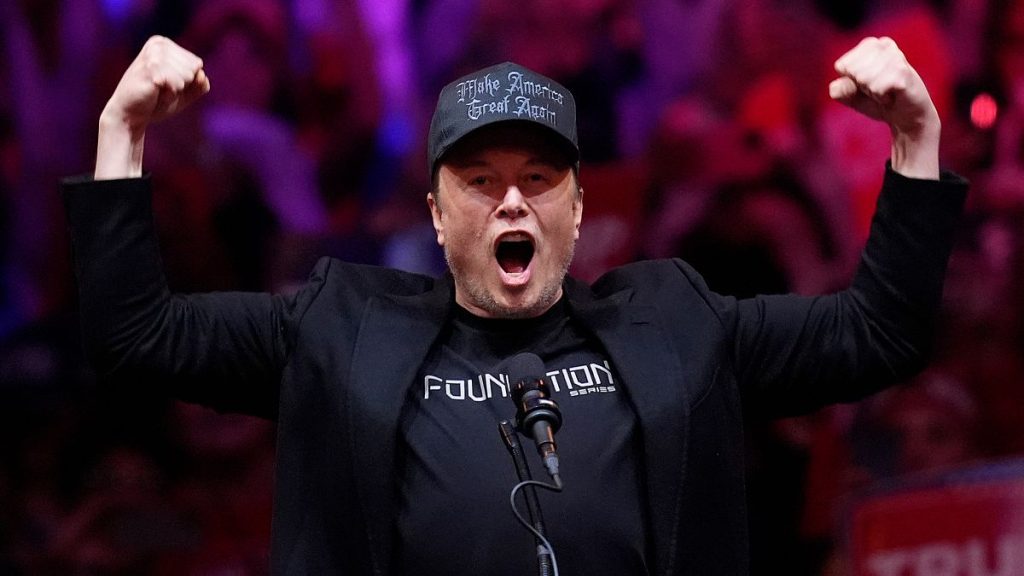Elon Musk’s guest contribution to the prominent German newspaper Welt am Sonntag sparked significant controversy due to its overt support for the far-right Alternative for Germany (AfD) party, leading to the resignation of the commentary editor and widespread criticism from journalists and politicians alike. The op-ed, which expanded on a previous post on Musk’s social media platform X, described the AfD as “the last spark of hope” for Germany, a contentious assertion given the party’s classification as a suspected extremist organization by the German domestic intelligence agency. Musk’s defense of the AfD centered on what he perceived as misconceptions about the party’s ideology, citing the personal life of party leader Alice Weidel as evidence against its extremist label. He further argued that the AfD’s stances on energy, economic recovery, and migration aligned with the principles that propelled his own companies, Tesla and SpaceX, to success.
The publication of Musk’s piece ignited immediate backlash within the Welt newsroom, with numerous journalists publicly expressing their disapproval on X. Eva Marie Kogel, the opinion editor, resigned from her position in the wake of the controversy, highlighting the profound disagreement within the editorial team regarding the decision to publish the piece. Franziska Zimmerer, a Welt journalist, revealed the “intense discussion” sparked within the office, with many colleagues opposing the publication. This internal dissent underscores the ethical dilemma posed by providing a platform for views considered by many to be aligned with extremist ideologies, particularly within the context of an imminent national election. The timing of the piece, just weeks before the snap election, further amplified concerns about the potential for Musk’s endorsement to influence public opinion and legitimize a party widely viewed as extremist within the German political spectrum.
The controversy surrounding Musk’s op-ed extends beyond the newsroom, prompting strong reactions from German politicians who have consistently rejected any form of collaboration with the AfD. This unified stance against the party reflects the broader societal concern over its far-right ideology and the potential consequences of its increasing influence. Musk’s intervention in the German political landscape through his high-profile endorsement of the AfD is seen by many as a reckless act that disregards the sensitivities surrounding the party’s extremist leanings. The incident also raises questions about the responsibilities of media outlets in providing a platform for controversial figures and potentially amplifying harmful ideologies, especially during sensitive periods such as election campaigns.
Musk’s central argument, focusing on Alice Weidel’s personal life as evidence against the AfD’s extremist classification, has been widely criticized as a superficial and misleading interpretation of the party’s platform and history. Critics argue that focusing solely on the personal attributes of one leader ignores the broader context of the party’s rhetoric, policies, and association with extremist elements. This simplistic approach, they contend, trivializes the complex issue of far-right extremism and fails to address the legitimate concerns raised by the AfD’s positions on immigration, national identity, and other sensitive topics.
The incident also underscores the growing influence of social media personalities and business magnates like Elon Musk in shaping public discourse and potentially influencing political outcomes. Musk’s significant online following and his ability to bypass traditional media gatekeepers through platforms like X allow him to disseminate his views directly to a large audience, circumventing the editorial scrutiny and fact-checking that typically apply to established media outlets. This power to shape narratives raises concerns about the potential for misinformation and the manipulation of public opinion, particularly in the context of political campaigns where carefully crafted messages can have a profound impact on voter behavior.
The controversy surrounding Musk’s op-ed serves as a stark reminder of the challenges facing media organizations in navigating the increasingly blurred lines between opinion, advocacy, and objective reporting. The incident highlights the need for a renewed focus on journalistic ethics, editorial responsibility, and the importance of providing balanced and nuanced coverage of complex political issues. The resignation of the Welt commentary editor underscores the ethical dilemmas faced by journalists in balancing freedom of expression with the responsibility to avoid platforming harmful ideologies. The episode serves as a cautionary tale about the potential consequences of prioritizing sensationalism over responsible journalism, particularly in the context of a polarized political landscape where the amplification of extremist voices can have profound and lasting impacts.














